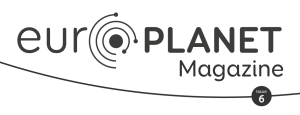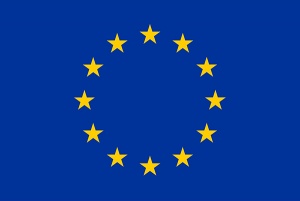ERIM 2023 – A New Kind of Europlanet Meeting
Anita Heward (Chair of the ERIM Organising Committee and Europlanet Sustainability Committee) reports on how a meeting in Bratislava has helped to lay the foundations for a sustainable Europlanet.
Read article in the fully formatted PDF of the Europlanet Magazine.
Networking and collaboration have been at the heart of Europlanet since its foundation in the early 2000s. The success of its research programmes, services, and activities to support the planetary community are all heavily reliant on personal interactions. These are developed and consolidated through access to facilities, expert exchanges, workshops, meetings and joint projects.
Almost 20 years on, we are in the midst of challenging times, with the global pandemic followed by wars, rising living costs and increased political uncertainty in many parts of the world. The importance of a community that can support colleagues at a professional and personal level has never been more evident. However, limitations on face-to-face contact, increased workloads and strains on mental health have all made it difficult to maintain – let alone grow – networks in recent years.
The pandemic came at a critical time in the Europlanet story: the Europlanet Society, founded in 2018, was still in the process of establishing itself and the mechanisms to build its membership. Moreover, a €10 million EU-funded project, the Europlanet 2024 Research Infrastructure (RI), was launched on 1st February 2020 – almost exactly coinciding with the first reported cases of Covid-19 in Europe.
The lockdowns implemented around most of the world in the spring of 2020, and the severe travel restrictions over much of the following two years, meant that the cohesion of the community started to suffer. In particular, it became an increasing struggle to recruit and maintain motivation for active volunteers for the committees and working groups that run activities, such as the Europlanet Science Congress (EPSC), the EPEC Early Career Network and the Society’s Regional Hubs.
In-person activities were able to resume from the spring of 2022, and EPSC took place in Granada, Spain, in September 2022. However, the intensity of catching up on long-delayed face-to-face meetings, and the proliferation of hybrid and online events has, at times, felt overwhelming. Packed schedules have meant that there has not always been time to renew connections properly.
In addition, EPSC 2023 was held as a joint meeting with the American Astronomical Society’s Division for Planetary Sciences (DPS) in San Antonio, Texas, USA (page 6), and there was no other major gathering of the European planetary community planned in 2023.
Introducing ERIM
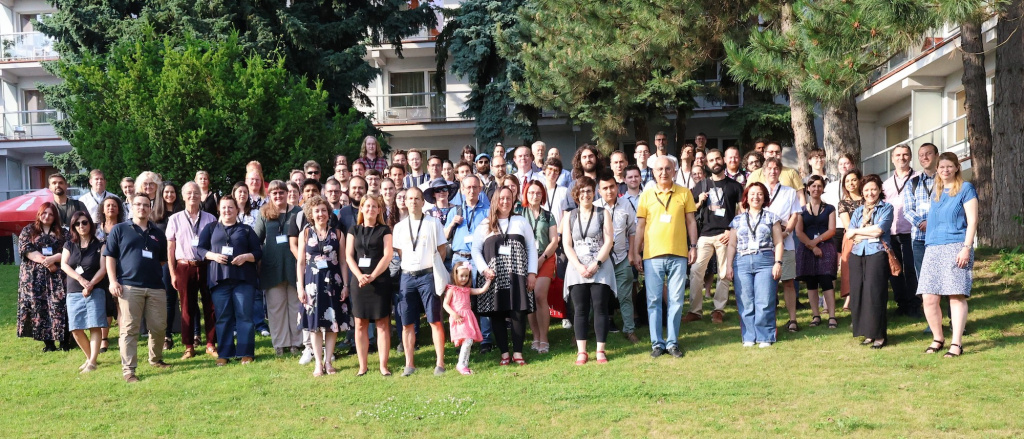
The idea for the Europlanet Research Infrastructure Meeting (ERIM) 2023 arose from the need to reinvigorate the sense of community in European planetary science in the wake of the Covid-19 pandemic.
The hybrid meeting took place from 19-23 June 2023 in Bratislava, Slovakia, and was co-hosted with the 5th edition of the Europlanet Early Careers (EPEC) Annual Week, which is the Europlanet training school for early career scientists who work in the field of planetary science.
ERIM was designed to bring the community together in a relaxed, interactive format that would promote collaboration and discussion on priorities and strategy for the future. The meeting provided an umbrella for other events planned by the Europlanet community, including science workshops, training sessions, the Europlanet Council Meeting and the General Assembly. During the week, participants were also tasked with addressing 10 challenges that face Europlanet’s long term plans for sustainability, ranging from redefining membership benefits and structures within the Society to identifying sustainable funding models for services and facility access programmes.
The venue for the meeting was the Hotel Sorea, located on the hillside underneath Bratislava Castle, close to the riverbank of the Danube. The hotel provided all the facilities needed for the meeting, including conference rooms for up to four parallel sessions, a dining room for breakfasts and buffet lunches, outdoor terraces and a large lobby/ bar area for networking, as well as accommodation for the majority of the participants.
Organisation of ERIM was a complicated task, as the final programme included 59 workshops and required the input of multiple groups within the Europlanet community.
The Local Organising Committee, led by Comenius University, provided the essential logistical support to ensure the smooth running of the meeting. Significant budgets for workshop organisation were available in the Europlanet 2024 RI project due to underspends on travel in 2020 and 2021. Thus, to attract attendance from a wide audience, no registration fee was set, accommodation costs were pre-paid and travel grants were offered to participants.
ERIM was also an opportunity for Europlanet to develop experience in organising hybrid meetings. Live-streaming of all sessions was managed by a local contractor, ALEF, with additional support from students at Comenius University. Each room at the venue was equipped with a camera capable of 360 degree rotation, which was primarily focused on the speaker during sessions, but could be directed around the auditorium in case of questions or discussion. Members of the ERIM Committee were tasked with monitoring questions from online participants, whose contributions could be brought into discussions via the main screen in the room.
Recordings of daily streams were edited into individual session videos, and titles and credits were added before the videos were uploaded to YouTube.
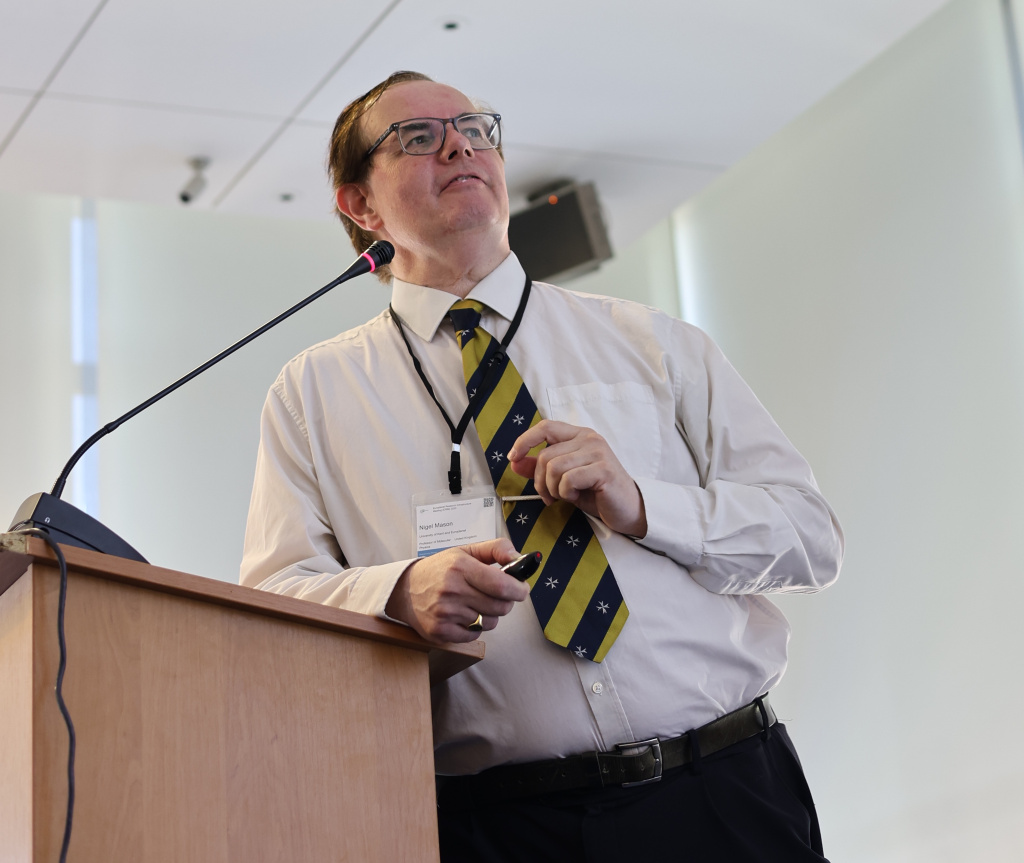
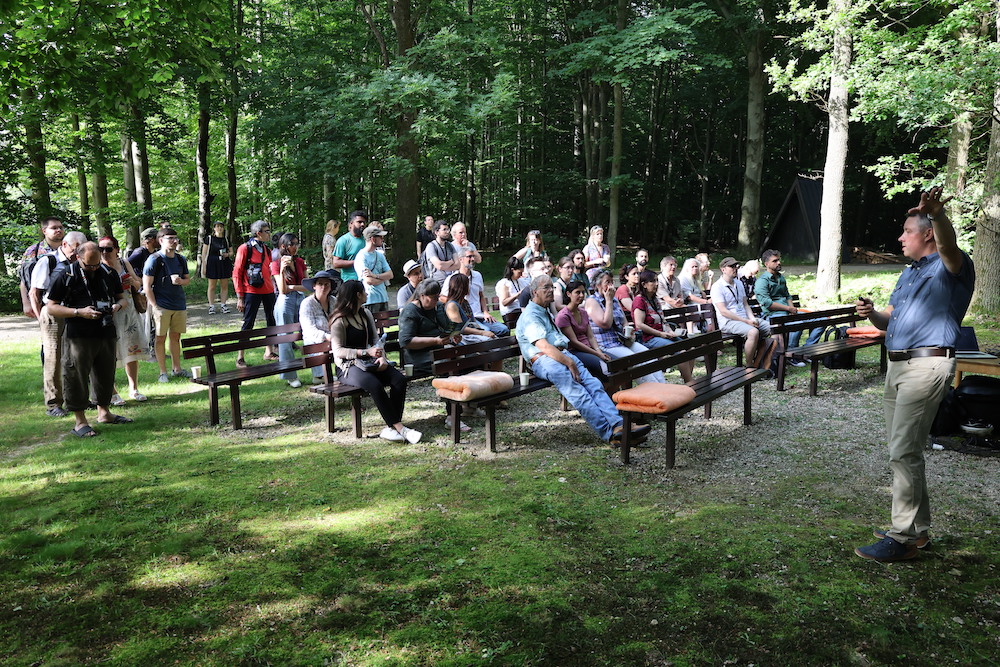
A Hybrid Hit
The hybrid event attracted 300 registered participants, with 137 in-person attendees, a further 94 participating in online workshops and 249 active users of the Whova application. A total of 46 countries were represented at the meeting. The programme included interactive sessions on geological mapping, planetary space weather, industry engagement, innovations in outreach tools, and observations of Solar System bodies and exoplanets. ERIM also brought together representatives of astronomy- related research infrastructures to reflect on current challenges and explore future options for developing and sustaining their operations.
The decision to host the meeting in Slovakia stemmed from the high priority placed by Europlanet on promoting collaboration with the planetary science community from European under-represented states, in particular in central and eastern Europe. ERIM proved significantly more successful in attracting these participants than an average EPSC meeting (where they account for less than 10% of registrants), with 29% of attendees coming from target countries including Slovakia, Hungary, Poland and Czechia. The programme included sessions and breakouts led by the Central Europe Hub, with the aim of providing an opportunity for discussion on common challenges and sharing best practice for widening participation in under-represented countries.
A number of social events and excursions were organised during the week. The EPEC Annual Week participants were given the option of participating in Laser Tag or a board game session. All participants were invited to attend a social event at the Parlament Restaurant at the top of the hill by Bratislava Castle on Wednesday night. The LOC also organised an excursion by bus to Comenius University’s Astronomical Observatory and daily tours of the University’s Electron Induced Fluorescence Laboratory.
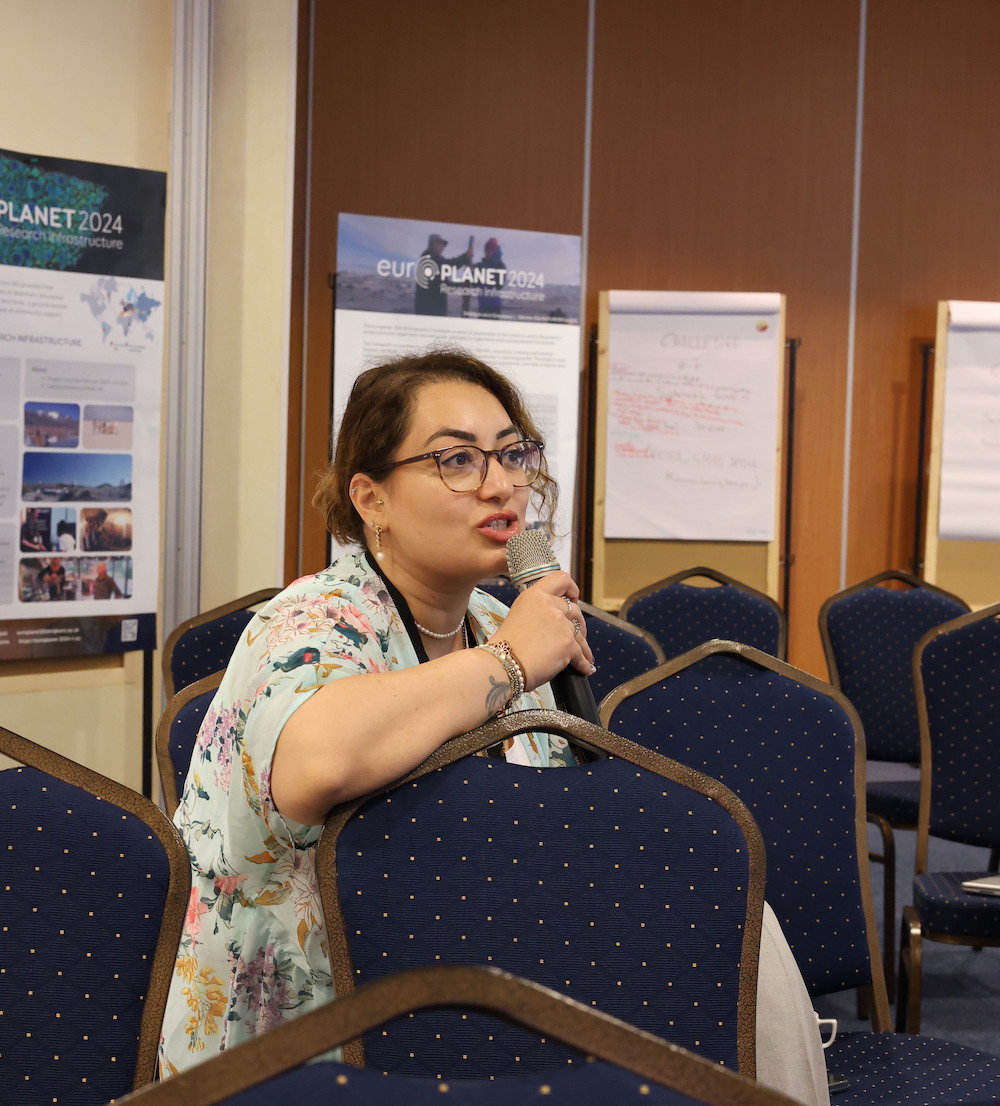
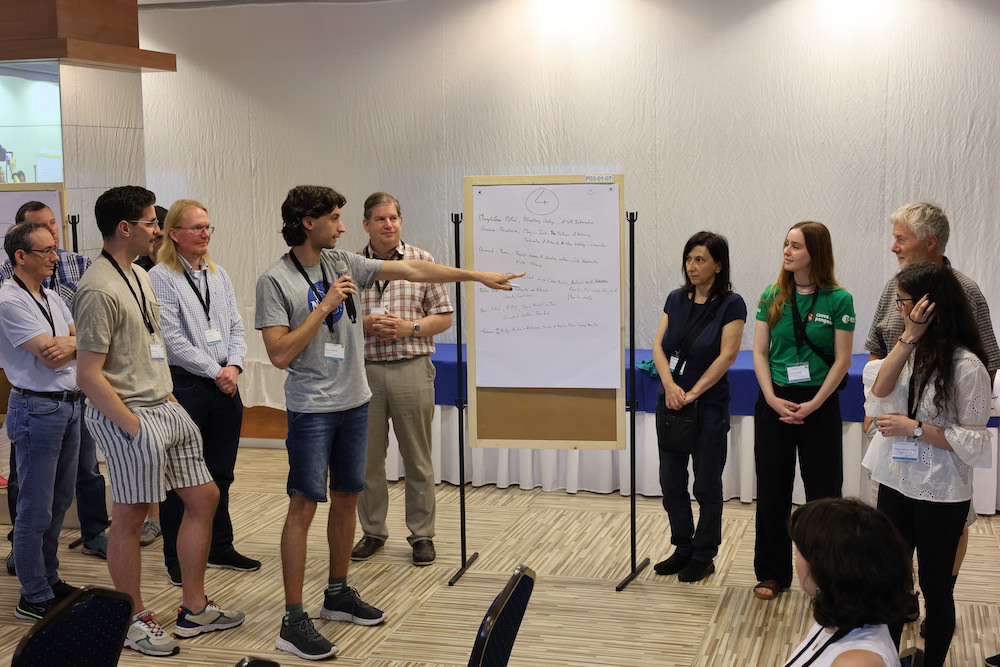
Feedback
A feedback form was circulated at the end of the meeting, which gave the option for free text feedback on what people liked and didn’t like about the meeting, or thought should be done differently.
49 responses were submitted, with 92% giving the meeting a four or five star rating overall. People particularly liked the opportunity to bring the community together for networking, the diversity of topics and the chance to contribute to strategic discussions (see Figure 1). Constructive criticism mostly related to the online platform, session clashes and timing of the meeting and discussions. Overall, the feedback suggested that participants had found ERIM to be an enjoyable experience that provided a timely and effective way for the community to feed into discussions about the future of Europlanet.
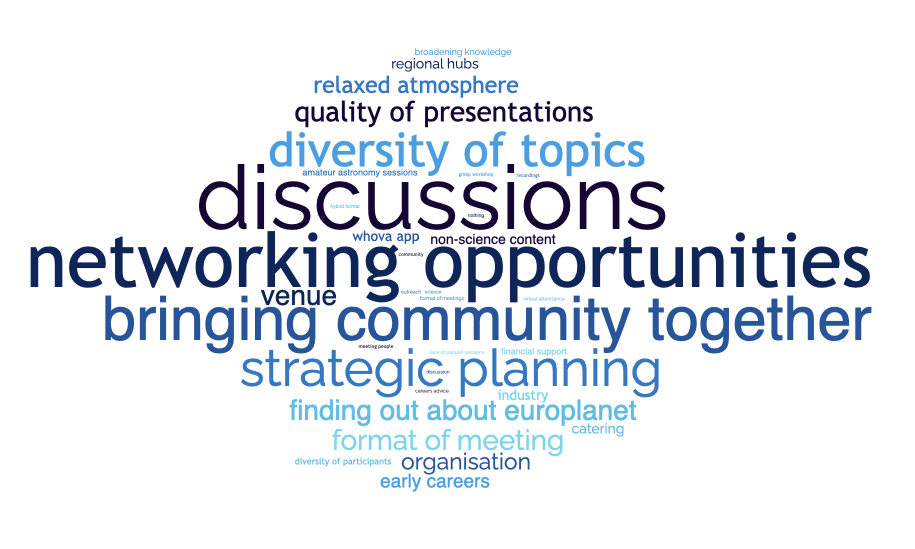
As one participant said: “This week was really nice to increase the networking between the community and clarify a lot about how the Society is working. In almost all the sessions I followed, debates were really useful to point out strengths and problems. We have collected lots of information to draft more easily the roadmap.”
Roadmap for the Future
The roadmapping activities initiated at ERIM have continued in the intervening months, with several online and hybrid follow-up discussion sessions held during the autumn of 2023. A new Sustainability Committee has now been set up to do the ‘heavy lifting’ of translating the ideas put forward by the community into a credible operational plan for Europlanet. The aim is to present the sustainability roadmap to the community at EPSC2024 in Berlin. In the meantime, look out for updates and requests for input on the Europlanet website and Discord server.
Find Out More
If you would like to catch up on what happened at ERIM, all recordings are on YouTube.
To share your views on Europlanet sustainability, join the conversation on Discord.
Acknowledgements
Europlanet 2024 RI has received funding from the European Union’s Horizon 2020 research and innovation programme under grant agreement No 871149.

